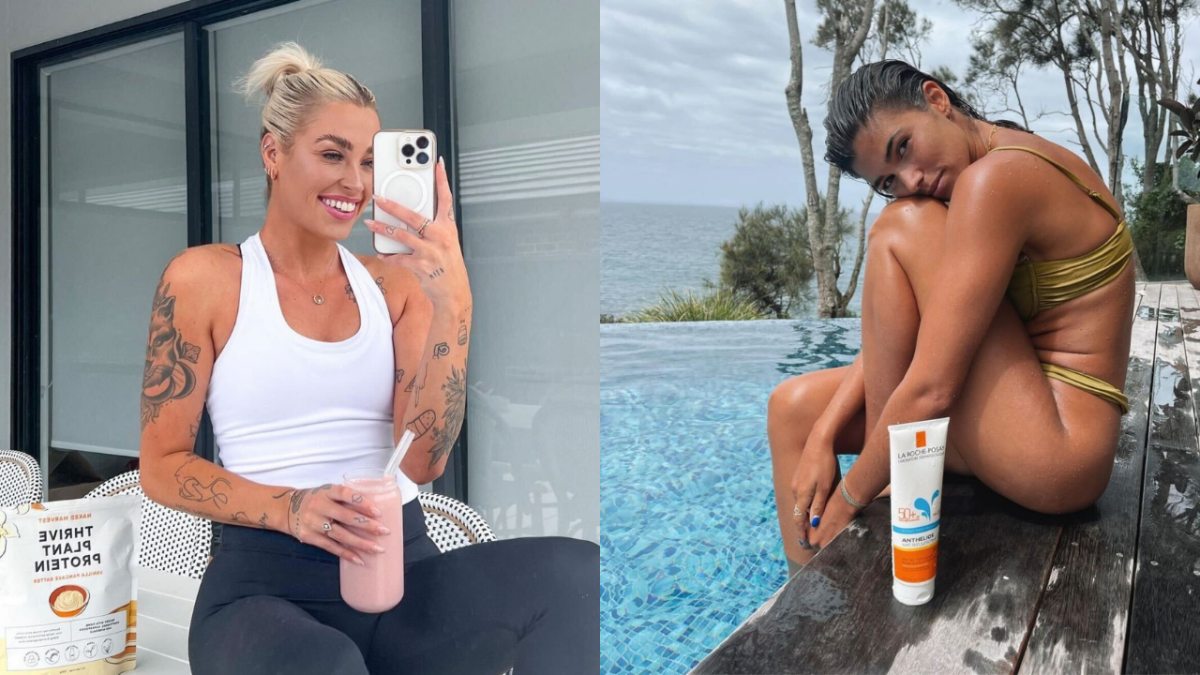
The Therapeutic Goods Administration (the same folks who are in charge of approving COVID vaccines) has announced that influencers will no longer be allowed to share their personal experience or feelings about a range of skin and healthcare products.
Amendments to the Therapeutic Goods Advertising Code will make it illegal for an influencer to receive cash or samples in exchange for reviews featuring their subjective opinion about a product. But they will still be able to list a product’s benefits and credentials.
These products include sunscreens, protein powders, vitamins, supplements, acne skincare, medicines and skin lightening products as per The Australian.
The TGA also states that products featuring claims like “‘removes toxins‘, ‘fades age spots‘, ‘relieves pain‘, ‘aids sugar metabolism‘, ‘reduces inflammation in the body‘” are included in the ban on reviews. This would mean influencers would need to tread carefully when endorsing them as per 9Honey.
Emma Claiir is a Sydney-based influencer with over 70k followers. She voiced several concerns in a post on her Insta Story earlier today about the TGA’s upcoming changes but remained optimistic.
“My concern is more so some small businesses that might be affected (sic) by this,” Claiir wrote.
“Influencer marketing is an amazing strategy for a lot of small brands to get epic reach and traffic but in saying that there are so many ways you can market your business.”
“Am I worried about it or stressed[?]… not really.
“For me personally I don’t promote many products that are TGA registered (JShealth is really the only one) so this is something I will have to chat with my manager about and that is totally fine.”
Suzy Madar is a partner at the King Wood and Mallesons law firm and specialises in technology and healthcare.
Madar wrote an explainer article for legal website Lexology detailing how the changes will affect brands and advertisers. She noted that under the new laws, there will be a distinction between an endorsement and a testimonial (AKA: a review).
“Brand ambassadors can endorse a therapeutic good (that is, provide an expression of support for a product or brand) provided the endorsement does not refer to the person’s personal experience using the good (which would amount to a testimonial).”
She went into more detail about how influencer endorsements will work under the new code.
“For example, if the endorsement refers to health benefits, the endorsement must be typical of the benefit that can be expected from the goods when used in accordance with the label and the approved indication and use.”
This essentially means that if an influencer is endorsing a particular sunscreen product, they can say that the product protects them from the sun.
However, the influencer cannot say for example, that they couldn’t live without the product because it “increases their worldly vitality and aligns their chakras” or some shit. This is because the alignment of chakras is not a typical benefit of most sunscreen products.
The problem for influencers is that some (not all) will often use flowery language to promote their sponsored products.
While in most cases it’s certainly not malicious or intentionally deceptive, influencers know that adding a little “pizzaz” to their sponsored posts can help drive product sales.
According to Madar, the overall goal of the new regulations is to prohibit “advertisements that cause, or are likely to cause, undue alarm, fear or distress”.
This is to prevent consumers worrying that their health might be at risk if they don’t purchase a certain therapeutic product.
The new regulations will officially kick in on June 30.



